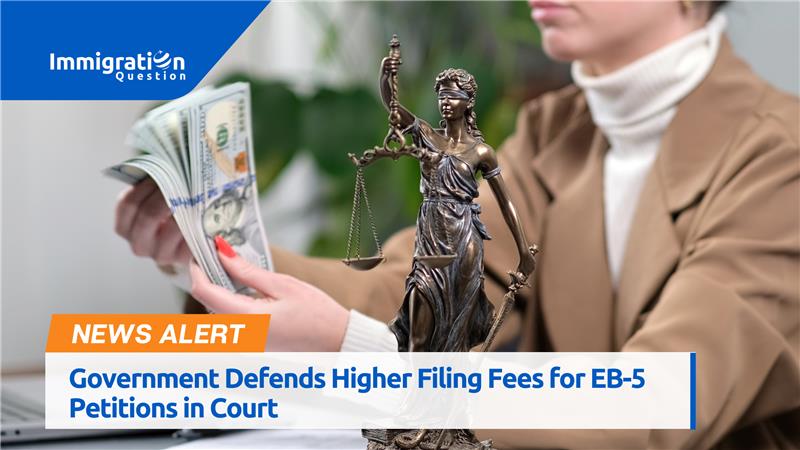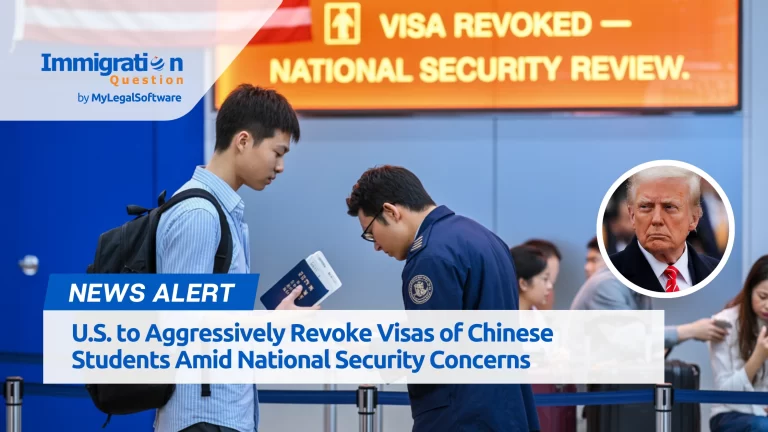Government Defends Higher Filing Fees for EB-5 Petitions in Court
The U.S. Department of Homeland Security (DHS) and U.S. Citizenship and Immigration Services (USCIS) are pushing for an early resolution in a Texas federal court case challenging increased filing fees for EB-5 immigrant investor program petitions. In a motion filed on November 22, DHS argued that the plaintiffs lack standing under Article III to pursue their claims under the Administrative Procedure Act (APA).
Background of the Case
The controversy stems from a DHS rule issued in January 2024, which raised filing fees for EB-5-related petitions. The plaintiffs – a group of regional center operators, a non-profit trade association, and an EB-5 sponsor—allege that the fee increases, implemented in April, violate several federal statutes, including the APA, the Immigration and Nationality Act (INA), the EB-5 Reform and Integrity Act (RIA), and the Regulatory Flexibility Act (RFA).
The plaintiffs claim the increased fees discourage investors from participating in the EB-5 program, potentially jeopardizing regional center projects. They argue that these changes could harm their ability to attract foreign investment, essential for job creation and economic development.
Federal Government’s Defense
The government counters that these claims are speculative and unsupported by evidence. DHS pointed out that EB-5 investors are already required to make substantial financial commitments – nearly $1 million on average, and regional centers often charge administrative fees of about $50,000 per investor. DHS contends that an increase in filing fees, capped at $7,485, is unlikely to deter serious investors.
The government also challenged the standing of the non-profit trade association Invest in the USA, arguing it failed to demonstrate specific harm caused by the fee increases.
Compliance with the Reform and Integrity Act
The plaintiffs assert that USCIS violated the RIA by increasing fees without completing a mandated fee study. They claim the fees must reflect the average time required to process EB-5 petitions. However, DHS maintained that while a fee study and updated rule are in progress, the RIA does not prohibit fee adjustments in the interim. Moreover, DHS argued that Congress intended for the RIA to enable quicker petition processing, which requires adequate funding from filing fees.
Broader Fee-Setting Principles
DHS rejected the plaintiffs’ argument that federal law bars the agency from charging fees exceeding the costs of EB-5 services or using those fees for other immigration services. Citing the INA, DHS emphasized that the law permits fees to recover full costs for adjudication and naturalization services, including those provided at no charge to asylum seekers and other immigrants.
Additionally, DHS defended its methodology, stating that workload reductions for EB-5 petitions and increased agency staffing costs justified the fee adjustments. The plaintiffs’ allegations about limited access to fee-determination software during the rule’s comment period were also dismissed, with DHS asserting that no APA violation occurred.
Court Action Sought
In its motion, DHS urged the court to limit any potential relief for the plaintiffs. It requested that the court remand the DHS rule for further review rather than vacating it entirely if the plaintiffs prevail. DHS also argued against the plaintiffs’ request to file fee refunds and their demand for a completed fee study within 90 days.
What’s Next? – Government Defends Higher Filing Fees for EB-5 Petitions in Court
The case highlights the tension between regulatory cost recovery and stakeholders’ concerns over the potential chilling effects of increased fees on participation in the EB-5 program. As the legal battle continues, the outcome could shape how future fee adjustments are implemented and justified.
To stay updated and informed, watch our news section or drop your immigration queries for professional attorneys to reply on Immigration Question










